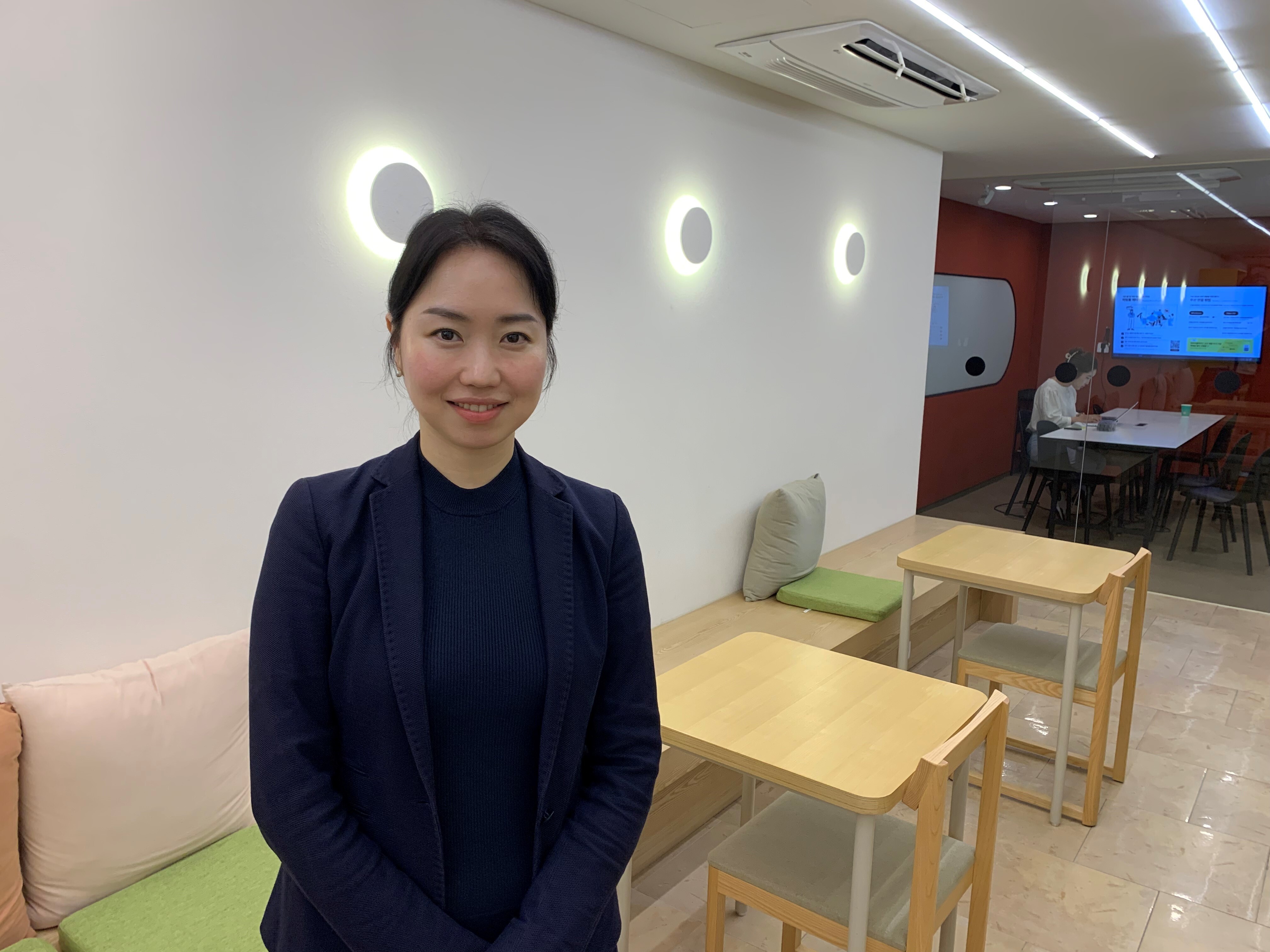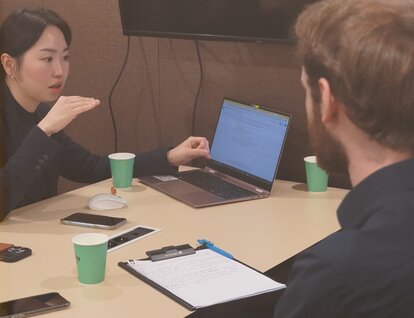Gender Equality in Korea
“Men earn respect much more easily”

Ara Goh, Founder and CEO of ALLY
Ara Goh is the founder of the consulting firm ‘Ally’. The entrepreneur is also an outspoken advocate for increasing the presence of women in leadership positions. Together with the Friedrich Naumann Foundation for Freedom in Korea, she organized a workshop for young female leaders to connect, exchange ideas and explore new ways to promote diversity.
In an interview with freiheit.org, Ms. Goh talks about her experiences as a woman in Korea’s business world: She talks about the immense pressure to perform, the difficulties becoming a female leader in a conservative culture, and Koreas record-low birth rate.
FNF Korea: Dear Ms. Goh, you have founded a consulting business helping start-ups to utilize new technologies such as AI and Blockchain. But you also help them to become more diverse and unlock the full potential of women. Why did you see the necessity?
Ms. Goh: As a woman, I experienced many tough hardships in the Korean work environment myself. I want to spare other women from these experiences by assisting companies become more diverse and equitable. We aim to be the catalyst for offering new ideas and possibilities from other countries and to open up new perspectives for our clients.
What kind of hardship have you faced in your career?
At my first job, I was the first and only female team member in my department in a traditional Korean automotive company. There was an expectation to work long hours, even on the weekend. My second company was a German corporation, and I had been recruited with the promise of a better work-life balance. However, sometimes I left the office after midnight due to my heavy workload as a founding member of a new division. When I raised this issue with my conservative Korean boss, he simply told me that when he was in my position at my age, he worked three days straight.
Korea is known for its long working hours. Wouldn’t your boss have said the same to a male employee?
Sure, and most of my male colleagues would not even consider raising such issues with the boss. This hesitancy stems from a deeply rooted culture that values loyalty and deference to elders. These attitudes are often reinforced during military service.
So women and men are treated differently?
Like in other countries, men earn respect and acceptance in the office much more easily. As a woman, I always felt I had to prove my skills. I wanted to be an example that women can work like men and not considered weak and less capable. In my role in a high-pressure finance and strategy team I had to deal with ceaseless requests from all departments. But being a woman in Korea this is not enough - I was expected to play the role of cheerleader for the team and always be pleasant and cheerful at my desk.
Korean workers are expected to perform not only in the office, but also in social settings such as after-work gatherings. Korean companies adhere to the infamous Hwae-sik Culture, where colleagues have dinner together and often consume alcohol - sometimes to excess. Is this a disadvantage for women?
Of course, it felt weird being the only woman in these kind of settings. My boss at the time allowed me to skip some rounds of drinks and supported my career as a female leader. However, he also gave me some advice: In this society, leaders are supposed to know how to drink.
Did you face any gender-specific discrimination that seemed particularly daunting?
There were certainly challenges, such as frequent inappropriate questions regarding my future family plans. However, these experiences have only strengthened my resolve to foster a more inclusive corporate culture.
Do you think HR departments in Korea are prepared to address these issues effectively?
To be honest, no. HR departments in Korea are typically quite weak. I know from a friend who works for Meta in the U.S. that they evaluate their bosses and have a pretty strong internal mechanism to report any discrimination, but that is far from the case in Korea. So most of the time the only option to deal with discrimination is to leave the company. I believe similar systems will gradually be adopted in Korea.

Moving on to MeToo in Korea. The society in Korea was confronted with many serious allegations, including some against prominent figures like presidential candidate Ahn Hee-jung. Has anything changed?
It was certainly a significant topic in Korea at the time. However, the legal consequences were limited. The problem remains that many victims feel ashamed and fear the consequences of speaking out against powerful men. Although much work remains to be done, the stage has undoubtedly been set for lasting change.
So harassment is still widespread in the Korean business world?
Yes, for example, I collaborate with numerous start-ups and heard from their female leaders about so-called 'Black Angel' investors. If you are a young female leader and you are seeking investment, you may encounter individuals who invite you for a private drink as a precondition for funding. I was shocked to learn this recently; it certainly represents a risk for female leaders in the Korean business landscape.
Many young men in Korea oppose policies to empower women. Korea is also unique in that young men tend to vote more conservatively than the previous generation.
Some young male conservatives see themselves as more discriminated against. The competition among young people for good jobs in Korea is incredibly fierce. So they fear that women will take the limited job opportunities away from them. They also point out that only men must complete military service, which lasts between 18 and 21 months.
What do you tell these young men?
I tell them that women bear burdens too because they give birth to children. It's also a fact that many Korean men do not feel responsible for childcare and housework. There are some changes now with the younger generations. Many men have been saying, "I help my wife with childcare and household duties". However, it should be “I share the housework and childcare with my wife”.
South Korea has the lowest fertility rate of any country in the world - just 0.79 children per woman. What are the reasons?
It's a lot of what we discussed: Women and men are under significant economic pressure. They need to excel, and part-time work is neither possible nor widely accepted for highly educated people. Additionally, there are too few childcare centres, or they have limited opening hours. They should be open until 7 pm - aligning with the working hours of many people in Korea. I believe that due to the inadequate support mothers receive in Korea, many women in their 20s forego the idea of having children and focus on their own careers and economic positions.
Why is Part-time not accepted?
The German example demonstrates that part-time work benefits families. However, here in Korea, it's not well established. Companies fail to see the benefits: they do not realize that they can retain their employees. Also, many employees are not even aware of the benefits of part-time work or that it's an option available to them. Some also fear they might be perceived as a not hard working colleague if they leave before 6 pm. The government needs to promote part-time models through information and regulation.
What about the older generations? How do they react to these policies?
The older generations hold a very traditional view of women. From my own experience, I can say that they place immense pressure, especially on women, to have children and start a family. I always tell them that this is not their decision, and given my responsibilities at work, it is currently not feasible. By leading with a modern ethos, we can show that family and career are not mutually exclusive, but rather mutually enriching.
Giving an outlook on how things might be tackled. How do you see the future?
I think many people are aware of the problems. I can say that Ally engages with start-ups and companies to find answers. But on a broader scale, although most people are aware of the problems, not enough is being done. We also need to change the mindset of some women. Many think they are too weak to prevail. I convince them that they are strong enough and that they should act accordingly.
*The interview was conducted by Jannik Krahe who is currently an intern at the foundation’s office in Seoul. Mr. Krahe studies political science at the Technical University of Darmstadt. He specialises in political theory and social equality.
